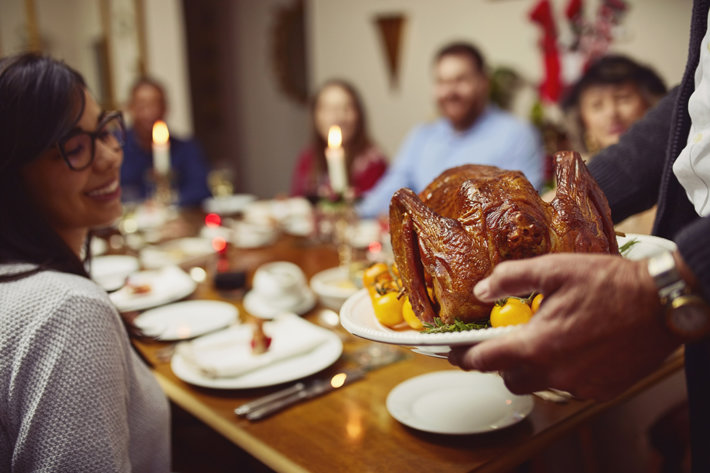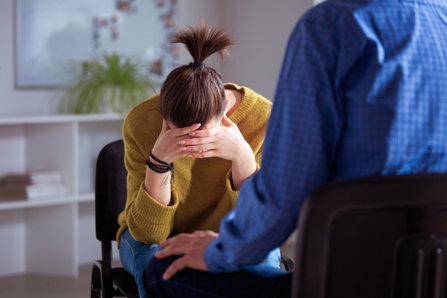Why You Should Say No to Alcohol This Holiday Season

The holidays are a time of celebration, bringing family together, making great memories, and sharing timeless moments with the people who matter. However, the holidays can often be a time of increased alcohol consumption, and for those in recovery, sharing a holiday meal with loved ones drinking alcohol, can be a real challenge.
Whether you are a recovering addict coming home for the holidays for the first time since getting clean, whether you just found out a holiday guest has an addiction and you’re not sure what to do, or whether you’re just looking for ways to have an alcohol-free holiday, this article has some valuable information we’d like to share.
Statistics—Alcohol Consumption Soars During the Holidays

Alcohol addiction is already a severe problem in the United States. According to the National Institute on Alcohol Abuse and Alcoholism, about 14 million Americans struggle with alcohol addiction. It’s estimated that approximately 95,000 people die from alcohol-related causes each year.
Alcohol abuse is a problem year-round, but the prevalence of heavy drinking and the resulting risk factors and harmful effects increase during the holiday months. Some of the effects include an increase in alcohol-related traffic accidents and fatalities during the holiday months, more trips to the ER for alcohol poisoning, more binge drinking, heavy drinking, family fallout, and other problems.
Tips On Staying Sober After Treatment
Are you coming home for Christmas or New Year’s Day? Is this going to be the first holiday season you’ve experienced since getting sober? Here are six tips on how to navigate what could be a difficult moment.
1. Identify potential sources of holiday stress and make a plan for how to cope without drinking.
Whether it’s talking with a supportive friend, saying a prayer, going for a walk, exercising, or creating something, make sure you have backup plans in case you are tempted to drink over the holidays.
2. Remind yourself that it’s okay to walk away from a difficult situation.
The holidays often combine two things that don’t go well together—alcohol and potentially problematic family moments. If you are in recovery from addiction and you get into a difficult situation with family during the holidays, remind yourself that walking away to protect your recovery is more important than any argument or confrontation.
3. Get your family on board with new holiday traditions.
Past holiday traditions may have involved drinking, but new ones don’t have to. Get the family on board with a new tradition, and make it alcohol-free!
4. Volunteer as a designated driver.
Volunteering as the holiday get together’s designated driver is a great way to commit to not drinking. You promised others you would help them with safe transport, and that commitment also helps you stay sober.
5. Find a favorite non-alcoholic drink.
Many holiday beverages can be made that are not alcoholic. Furthermore, there are even alcoholic beverages that are available in a non-alcoholic option.
6. Host games and activities that are best done sober.
If you are hosting a special event or holiday party, why not include activities, games, and memorable moments that would be better enjoyed sober? A post-dinner family hike, a treasure hunt, a trip to the beach or local park, and other activities could inspire other family members to join you in not drinking alcohol.
Addiction and Family
Just as important as it is to cover the above points on what to do if you are a recovering addict looking for additional support in staying sober during the upcoming holiday season, it’s also important to talk about what you should do if you find out at this year’s holiday events that one of your family members or friends is addicted to alcohol. Remember, some 95,000 people lose their lives to alcohol each year, so this is a severe affliction that should be addressed as soon as you are aware of it.
Furthermore, just the day-to-day physiological effects of alcohol consumption are quite harmful and are reason enough to help a loved one get off alcohol. From blackouts to memory loss, poor judgment to poor motor function, brain damage, cirrhosis of the liver, and many cancers, chronic and heavy alcohol consumption takes a severe toll on the body.

If you find out a loved one is addicted to alcohol over the Christmas and New Year holidays, please do everything you can to help them into a drug and alcohol rehab center.
Alcohol addiction is insidious and can spiral out of control to something the individual has virtually no control over. They cannot stop using alcohol on their own, so they will need to seek outside help before their addiction kills them.
While it is true that most addicts do want to get help, many feel that there is no help that will work for them, that finding such help is too difficult, that they will relapse, or that rehab does not work. That’s why you may have to step in and help them.
If someone you care about is addicted to alcohol, please contact Narconon today. Please don’t wait until after the holidays to get them help.
Sources:
- https://www.niaaa.nih.gov/publications/brochures-and-fact-sheets/alcohol-facts-and-statistics
- https://pubs.niaaa.nih.gov/publications/aa63/aa63.htm


